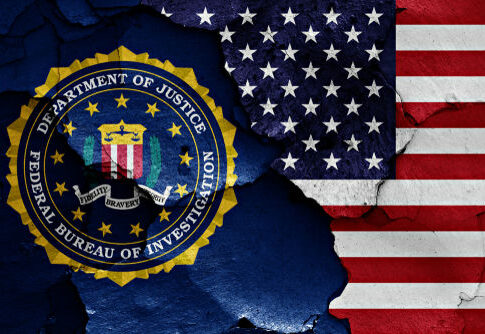For the first time in American history, military attorneys are now set to prosecute civilian crimes in Washington D.C., marking a dramatic escalation in the Trump administration’s federal crackdown on local lawlessness.
Trump Administration Deploys Military Attorneys Amid Crime Surge
In response to persistently high crime rates and a backlog of cases in the nation’s capital, President Trump has authorized the assignment of twenty Judge Advocate General (JAG) military attorneys to the U.S. Attorney’s Office in Washington, D.C. These attorneys, traditionally tasked with military justice, will now prosecute civilian misdemeanors—a move that coincides with the deployment of National Guard troops and increased federal law enforcement activity. This unprecedented step comes after the administration cited understaffing in the prosecutor’s office and the need for rapid, decisive action to restore order.
Federal authorities began their intervention in early August, when President Trump announced the federalization of D.C.’s police. The Metropolitan Police soon reported a drop in homicides, and the presence of 800 National Guard troops became a visible symbol of the new law-and-order approach. Attorney General Pam Bondi and FBI Director Kash Patel quickly followed with announcements of sweeping arrest numbers and ongoing federal operations targeting serious offenses, including illegal immigration and firearms violations. U.S. Attorney Jeanine Pirro, now overseeing prosecutions, has instructed federal and military lawyers to maximize charges, signaling an aggressive posture toward criminal prosecution in the district.
Unprecedented Use of Military Attorneys in Civilian Justice Raises Questions
The direct involvement of JAG officers in civilian prosecutions is virtually unheard of in recent American legal history. While D.C. has always operated under unique federal oversight, critics warn that this new measure blurs the line between military and civilian justice. Legal scholars and civil liberties advocates argue that assigning military attorneys to prosecute civilians could raise constitutional concerns, including due process rights and the risk of creeping militarization in the justice system. These concerns are amplified by the federal government’s expanding control over what has historically been a local responsibility, intensifying debates over federalism and local autonomy.
Despite the criticism, administration officials insist the move is a necessary response to a crisis made worse by years of failed progressive policies, soft-on-crime prosecutors, and surging illegal immigration. Supporters highlight immediate benefits: a reported reduction in violent crime, more efficient prosecutions, and a show of strength against criminal elements undermining public safety. For many conservative Americans, the deployment of federal and military resources represents a long-overdue commitment to restoring order and upholding traditional values in the face of chaos and bureaucratic inertia.
Impact and Reactions: Constitutional Concerns Versus Public Safety
The Trump administration’s intervention has already produced tangible results, with over 630 arrests and an increased federal presence on city streets. However, the long-term implications remain uncertain. Civil rights groups are preparing legal challenges, arguing that military involvement in civilian prosecutions could set a dangerous precedent for future government overreach. Local residents, especially those in heavily policed neighborhoods, face heightened tensions as the balance between security and individual liberties shifts. Economically, the federal government’s expanded law enforcement budget signals a willingness to spend what it takes to achieve results, even as critics question the cost to civil society and constitutional norms.
Military attorneys to help with D.C. crime caseload during federal takeover https://t.co/KDWOnkg0eB pic.twitter.com/03dfT5gIoO
— The Washington Times (@WashTimes) August 22, 2025
Looking ahead, the assignment of military attorneys and the federalization of local law enforcement in D.C. may become a defining test for the limits of executive power and the resilience of American legal traditions. While the administration frames these actions as a victory for law-abiding citizens and a blow to criminality, the debate over justice, constitutional rights, and the proper role of government is only just beginning. The nation will watch closely as this historic experiment in federal intervention unfolds in the heart of the capital.
Sources:
Trump admin assigns military attorneys to prosecute D.C. crimes amid federal crackdown
JAG officers to prosecute local D.C. cases amid Trump takeover
U.S. attorney in D.C. seeks to maximize charges against arrestees, with exemptions for firearms

